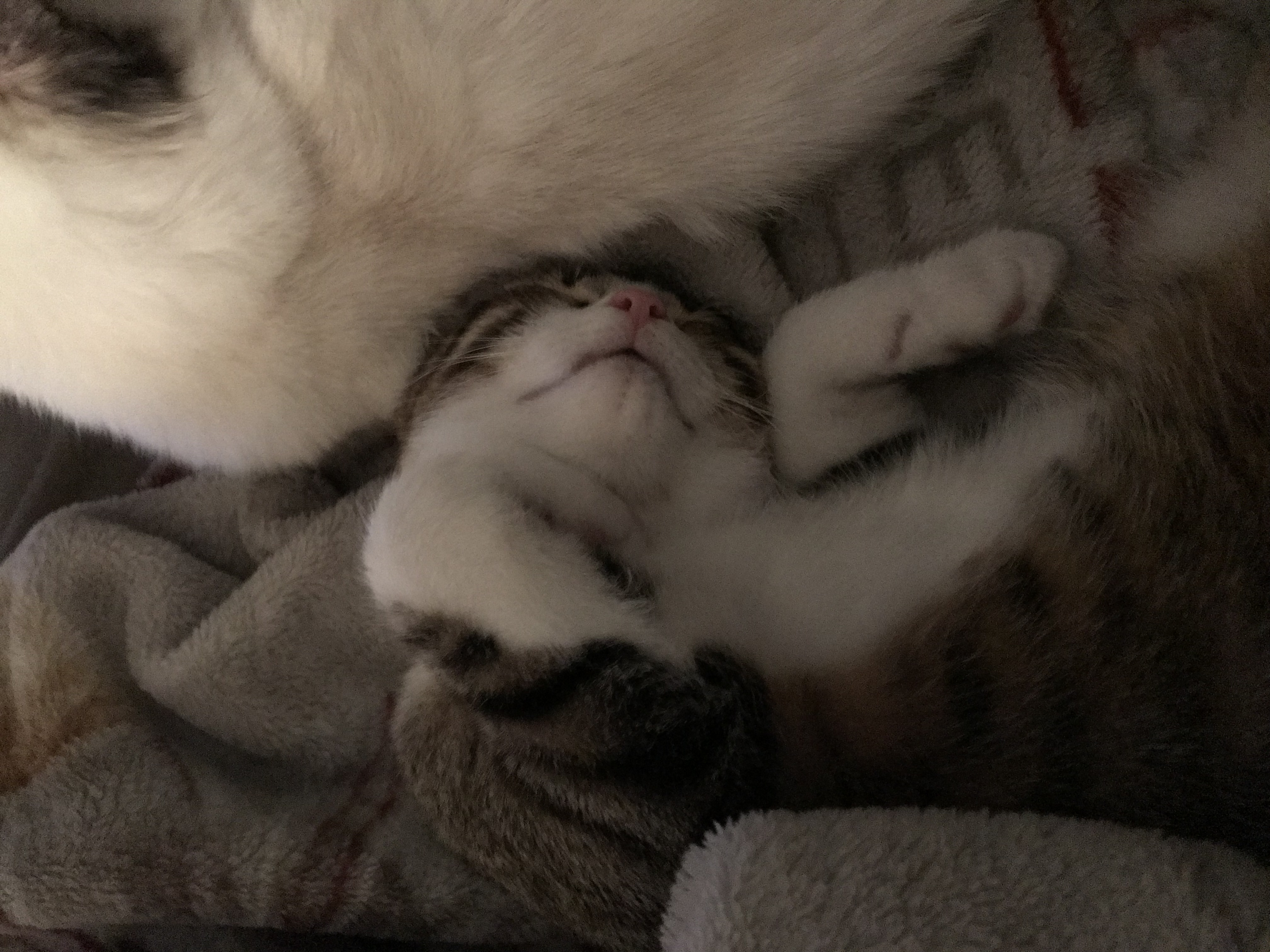So... one of my cats, our boy to be exact, didn’t have the smoothest start in life. Due to hypothermia (and a very bad cold) at birth he has an acquired brain injury, it is mild and he had been followed up by a vet regularly. It seems to mostly manifest itself into him being a bit clumsy and uncoordinated. If you didn’t know his history, you would honestly struggle to notice the brain injury.
He does have an involuntary head wobble sometimes, but the vet isn’t too worried. However, because of this we agreed to neuter him once he rounded the 6 month mark.
I’m a bit worried though about the neutering... Like I’m not sure about the anesthetic and with his injury. Especially so since the last two days. I’m 90% sure he has been experiencing a sudden onset of localised seizures. It’s mostly been a lot of (seemingly) involuntary blinking in rapid succession and he is still responsive when it happens. He only has had one suspected seizure where it was more noticable, when his muscles seemed to seize up. Although, admittedly, that may just have been an attempt at him trying to bat at something, he doesn’t always move the way he *intends* to.
But yes, does anyone have any experience with neutering a young male with a brain injury?
He does have an involuntary head wobble sometimes, but the vet isn’t too worried. However, because of this we agreed to neuter him once he rounded the 6 month mark.
I’m a bit worried though about the neutering... Like I’m not sure about the anesthetic and with his injury. Especially so since the last two days. I’m 90% sure he has been experiencing a sudden onset of localised seizures. It’s mostly been a lot of (seemingly) involuntary blinking in rapid succession and he is still responsive when it happens. He only has had one suspected seizure where it was more noticable, when his muscles seemed to seize up. Although, admittedly, that may just have been an attempt at him trying to bat at something, he doesn’t always move the way he *intends* to.
But yes, does anyone have any experience with neutering a young male with a brain injury?



 I was going to take him for a full check up next week, to get his brain checked out again. So hopefully, it won’t be epilepsy.
I was going to take him for a full check up next week, to get his brain checked out again. So hopefully, it won’t be epilepsy.









